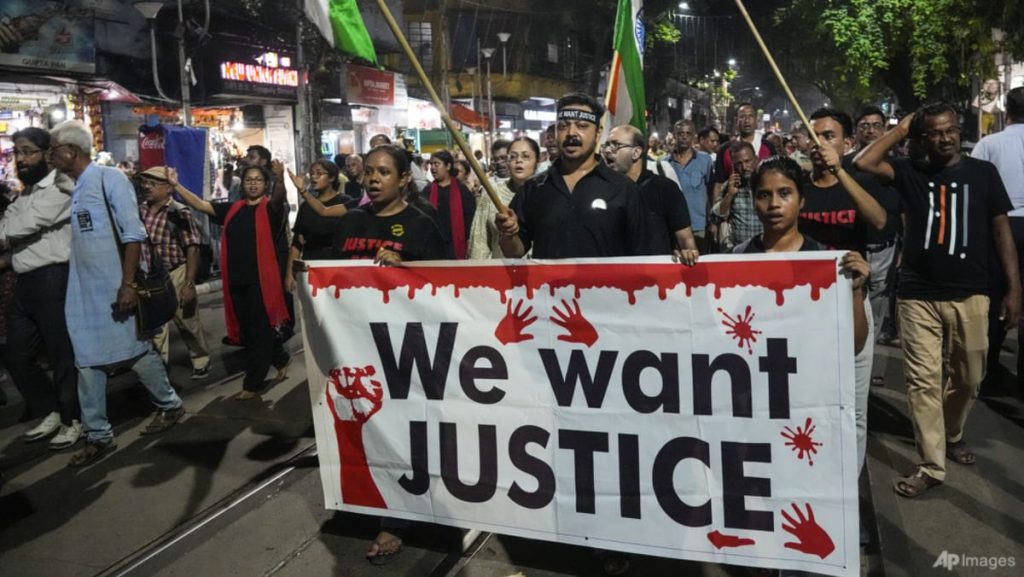Doctors in Kolkata, India went on strike for weeks following a brutal attack on one of their colleagues. Tens of thousands of ordinary Indians joined the protests, emphasizing the lack of measures to protect female doctors in particular. While most doctors have resumed work, a small group has continued their protest through a hunger strike. They accuse the West Bengal state government of failing to fulfill promises to enhance security measures such as lighting and security cameras to ensure their safety.
The Supreme Court of India has taken notice of the situation and ordered a national task force to investigate ways to improve security for healthcare workers. The killing of the doctor has shocked the nation, prompting widespread outrage and calls for action to prevent such incidents in the future. The severity of the attack has drawn comparisons to the 2012 gang rape and murder of a young woman on a bus in Delhi, which sparked a similar nationwide outcry and demands for better protection of women.
The ongoing protests and hunger strike highlight the urgent need for improved safety measures for healthcare workers, especially female doctors. The lack of adequate protection and security in hospitals and medical facilities puts these professionals at risk of violence and harm, making it difficult for them to carry out their duties without fear. The failure of the state government to deliver on promises to enhance security measures has further fueled the anger and frustration among medical professionals.
The protests in Kolkata and across India reflect a growing concern for the safety and security of healthcare workers who face the risk of violence and attacks while serving their communities. The fact that tens of thousands of ordinary citizens have joined in the protests underscores the widespread support for the cause and the demand for effective measures to protect medical professionals. The brutality of the attack on the doctor has galvanized public opinion and spurred calls for immediate action to address the underlying issues that contribute to such incidents.
The Supreme Court’s intervention and the establishment of a national task force to address the security concerns of healthcare workers signal a recognition of the seriousness of the situation and the need for coordinated efforts to ensure the safety of medical professionals. The court’s decision reflects a commitment to upholding the rights and safety of healthcare workers and the importance of taking concrete steps to prevent future attacks. The comparison of the doctor’s killing to the 2012 gang rape and murder in Delhi serves as a stark reminder of the persistent challenges to women’s safety in India and the urgent need for comprehensive reforms to address these issues.
In conclusion, the protests and hunger strike by doctors in Kolkata and the subsequent nationwide outrage highlight the pressing need for improved security measures for healthcare workers in India. The failure of the state government to protect medical professionals has sparked widespread anger and calls for action to prevent similar incidents in the future. The Supreme Court’s intervention and the establishment of a national task force are positive steps towards addressing the security concerns of healthcare workers and ensuring their safety. The comparison to the 2012 Delhi gang rape underscores the ongoing challenges to women’s safety in India and the urgent need for comprehensive reforms to address these issues and protect medical professionals in their line of duty.


